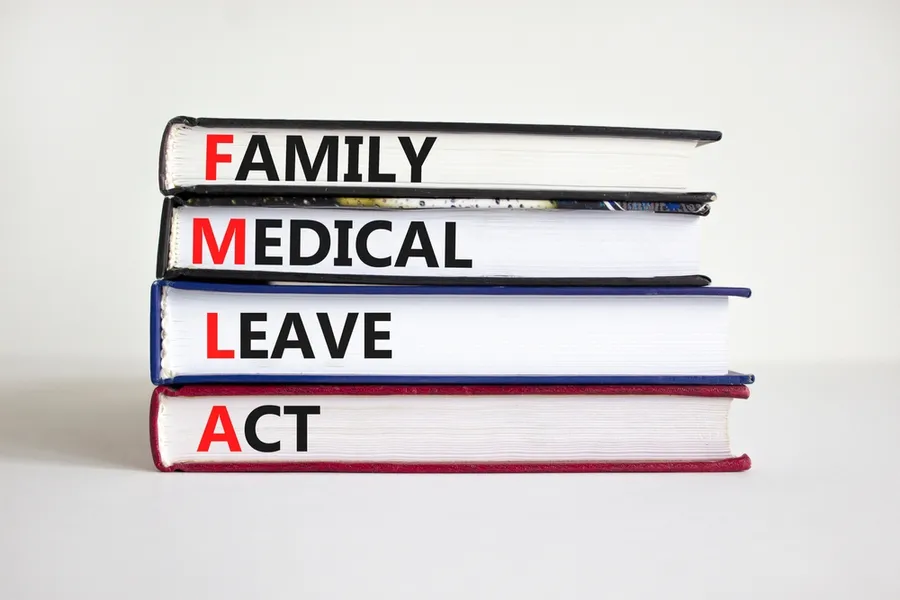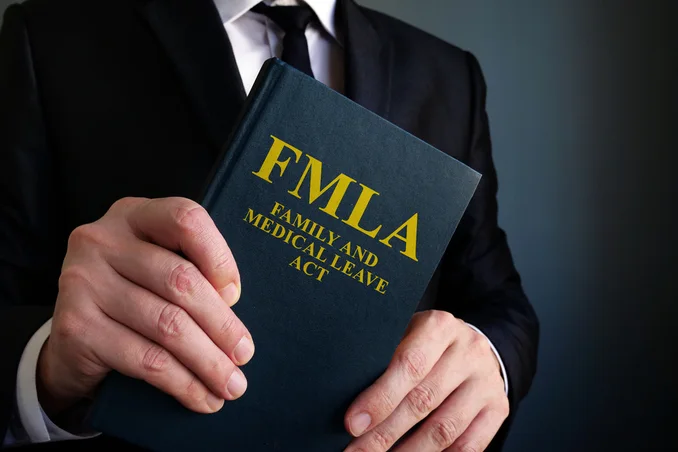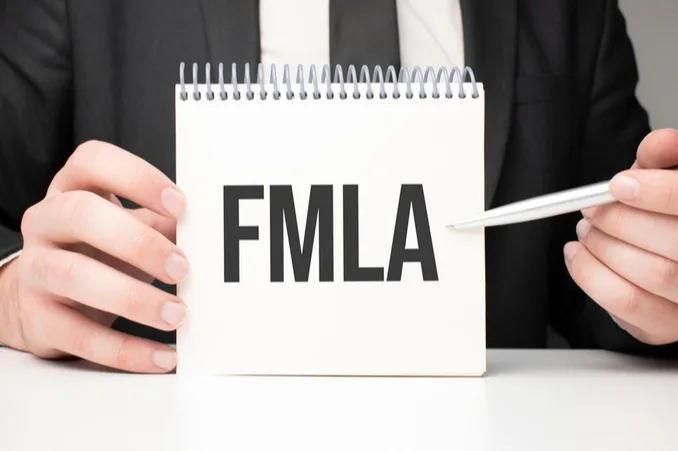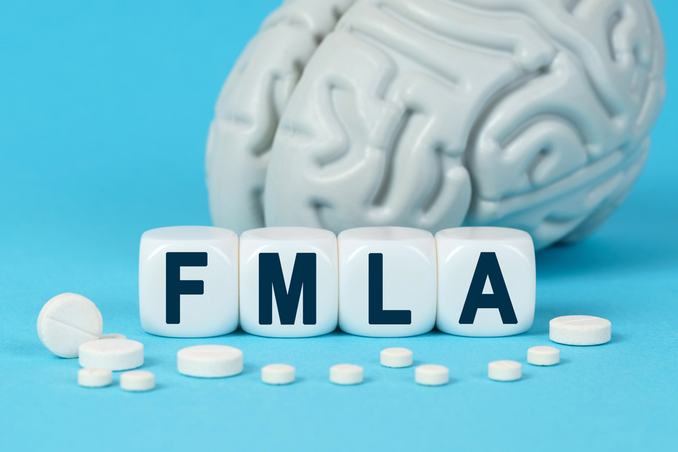What is the FMLA?
Table of Contents
- What is the FMLA?
- What is a Qualified Employer?
- What Benefits Does the FMLA Include?
- Who is Eligible for the FMLA?
- The Americans with Disabilities Act and FMLA
- Can I Use the FMLA for Rehab?
- Can the FMLA be Used for a Mental Health Condition?
- Mental Health and Substance Abuse
- Methods of Addiction Treatment
- Covering the Costs of Substance Abuse Treatment
- FMLA for Rehab: Find the Right Treatment Options Now!
- Medically Reviewed By
The Family Medical Leave Act (FMLA) is a law that allows eligible employees under a covered employer to take a leave of absence in the event of a specified family or medical emergency.
While employees are not paid for their time on leave, the FMLA ensures they can handle a crisis while still receiving health insurance coverage, and without worrying about the possibility of losing their job. This includes using FMLA for rehab, with its protections extending to those seeking help with alcohol or substance use disorders.
A Brief History of the FMLA
The Family and Medical Leave Act was originally presented to Congress in 1984, only to be repeatedly blocked for the next nine years afterward. While it was passed by Congress in 1991 and 1992, it was vetoed both times by President George H.W. Bush.
However, upon the election of President Clinton (and a series of activist movements on its behalf), the FMLA was officially signed into law in 1993.
What is a Qualified Employer?
When it comes to what constitutes covered employers, the FMLA defines these as:
- Private employers, or private sector employers that hire 50 or more employees within a span of 20 or more workweeks, either in the current or preceding calendar year.
- Public agencies, including local, state, or federal government agencies, and federal employers, of which do not need to meet a specific number of employees.
- Public or private elementary or secondary schools, also with an undefined number of employed individuals.
What Benefits Does the FMLA Include?
For qualifying individuals, the Family and Medical Leave Act entitles them to a number of benefits. This includes twelve workweeks of unpaid, job-protected leave (within a 12-month period) for:
- The birth and after-care of a newborn child, so long as it is within a one-year span of the baby being born.
- An employee’s placement with and adoption or fostering of a child, within a one-year time-frame of their placement.
- The care of an employee’s family member, such as a spouse, child, or dependent parent with a serious health condition.
- A qualifying situation stemming from the employee’s spouse, child, or parent being a covered military member on “covered active duty.”
Or, this may include twenty-six workweeks of leave within a 12-month period to allow an employee to care for a covered servicemember who is impaired by a serious illness or injury, so long as they are the employee’s spouse, child, parent, or next of kin. This is referred to as military caregiver leave.
Who is Eligible for the FMLA?
Apart from the reasons above, an employee can be considered eligible for FMLA leave in the event that they are struggling with their own serious medical condition, which may impair them from being able to perform the essential functions of their job.
Of course, there are a number of health conditions that can prevent an individual from performing their job in an effective manner. This begs the question of, exactly what kind of illness or injury qualifies for FMLA leave?
What is Considered a Qualifying Serious Health Condition?
There are several physical health conditions that are covered under the FMLA due to their disruptive and impairing nature. These may include:
- Chronic back pain or serious back injuries
- Cancer
- Diabetes
- Emphysema (a condition in the lungs causing breathlessness)
- Nervous System Disorders (such as epilepsy, ALS, etc.)
- Pregnancy
- Multiple sclerosis
- Pneumonia
- Severe forms of arthritis
- Serious surgeries and their recovery periods
- Injuries sustained on (or off) the job
For employees suffering from any of the listed ailments, it may be beneficial to consult with their healthcare provider about receiving treatment under the FMLA.
The Americans with Disabilities Act and FMLA
For employees who are injured or otherwise disabled on the job, this may entitle them to job protection and leave under two federal laws: The Family Medical Leave Act (FMLA) and the Americans with Disabilities Act (ADA).
The ADA seeks to protect employees in a non-discriminatory manner, by ensuring that a private employer cannot prevent their being hired, promoted, or otherwise, on account of their disability.
Furthermore, it ensures fair treatment to these individuals by requiring their employers to provide reasonable accommodations for their disability within the workplace.
To find more information on the ADA, click here.
Can I Use the FMLA for Rehab?
While quite a lot of stigma still surrounds addiction today, a substance use disorder does qualify for unpaid leave under the FMLA.
Whether an individual is struggling with alcohol abuse or drug addiction, these are conditions that significantly impact their physical, emotional, and mental wellbeing. Particularly in the case of alcohol addiction and/or certain forms of drug abuse (such as an opioid use disorder), the side effects of these can be severe, if not lethal.
Thus, if you or a loved one is struggling with substance abuse problems, taking FMLA leave and using this time off to seek treatment can make all the difference in your recovery journey.
Can the FMLA be Used for a Mental Health Condition?
In the event that an employee is diagnosed with a serious mental condition by a licensed physician, they will qualify for FMLA leave.
In accordance with FMLA guidelines, a mental illness is considered severe in the event that it requires inpatient care or continuing treatment through a licensed healthcare provider.
What Mental Disorders are Considered a Serious Medical Condition?
In many cases, mental illnesses can significantly vary in nature depending on a number of circumstances, including an individual’s environment, family history, co-occurring disorders, and more.
When it comes to receiving job-protected unpaid leave under the FMLA, qualifying mental disorders may include:
- Severe Bipolar Disorder
- Severe Depression
- Alzheimer’s Disease (amongst other memory disorders)
- Schizophrenia
- Severe Stress or Anxiety Disorders
- Post-Traumatic Stress Disorder (PTSD)
Mental Health and Substance Abuse
When it comes to mental health and substance abuse, these disorders often go hand-in-hand. In many cases, individuals who suffer from persistent negative emotions, thoughts, and / or feelings may attempt to self-medicate this mental health issue with drugs or alcohol.
While this may provide a level of relief initially, over time, this substance abuse may only further intensify these feelings, ultimately creating a cycle of continuous usage with little to no benefit.
For those who are struggling with addiction and another co-occurring disorder, finding a rehab program that specializes in treating these certain circumstances is strongly recommended.
Methods of Addiction Treatment
There are a variety of substance abuse treatment methods and options available today. Whether an individual is looking for drug rehab options or is attempting to overcome an alcohol addiction, help is available.
Treatment for substance abuse can exist in many forms, whether this involves inpatient care at a residential treatment center, outpatient care programs, or otherwise. Of course, certain forms of substance abuse will require more intensive treatment methods.
For example, alcohol addiction can be particularly difficult to recover from. In extreme cases, this can become lethal if not managed correctly. This may also be the case in certain forms of drug rehab, such as for those who are attempting to stop abusing opioids or heroin.
Ultimately, the method in which an individual chooses to receive treatment for their addiction is solely up to them. However, speaking with a health care provider or addiction treatment professional can help narrow down these options. Click here to find out more about the 7 Levels of Care in Addiction Treatment.
Treating Severe Forms of Substance Withdrawal
For individuals who are using FMLA for rehab to treat an addiction to more intense substances such as alcohol, opioids, or heroin, it will generally be recommended that they undergo a medically supervised detox process.
This will be done at an inpatient treatment facility, and will typically involve constant medical supervision as the individual is gradually weaned off of an abused substance, as well as a specialized diet to help their body recover from this addiction.
Furthermore, individuals may be given controlled medications that are designed to help prevent or manage the side effects of withdrawal.
Covering the Costs of Substance Abuse Treatment
Because FMLA leave is unpaid leave, employees suffering from substance abuse may avoid seeking out addiction treatment because of financial concerns.
This may result from a number of reasons, including a lack of insurance, a fear of being fired due to their addiction, or a lack of external support (financial or otherwise). However, these fears do not have to prevent these individuals from receiving help.
For those who do have insurance, most policies will cover drug and alcohol rehab. Depending on an individual’s specific plan and provider, this level of coverage may vary.
To find out what level of compensation they may qualify for, individuals should speak with their insurance providers directly.
Or, you can try using our quick and easy Free Insurance Verification tool here.
FMLA for Rehab: Find the Right Treatment Options Now!
As discussed, substance abuse disorders are serious health conditions. If you or a loved one is struggling with this disease and are ready to start finding addiction treatment options, do not let the fear of losing your job hold you back.
By taking an FMLA leave to start your recovery journey, you can protect your job, your family, and your future. Of course, at Find Addiction Rehabs, we understand that the process of finding treatment options can often be complicated and overwhelming; but that is why we are here.
Our hotline is available 24/7 so that our representatives are always available to help you find a rehab program or treatment center that is dedicated to serving your personal care needs. Make the right choice, and let us help you take the first step on your path to sobriety, today!
Eric R. hails from Maine and does extensive work in the field of behavioral health as both a professional writer and passionate advocate for those suffering. From his own personal encounters with mental illness, he speaks to those seeking healthy relief from depression and anxiety and embraces wellness both personally and professionally. After losing friends and family to the darkness of suicide, Eric aims to educate and inform about the nature of treatment and render it accessible for all those seeking a way out of darkness and despair.







